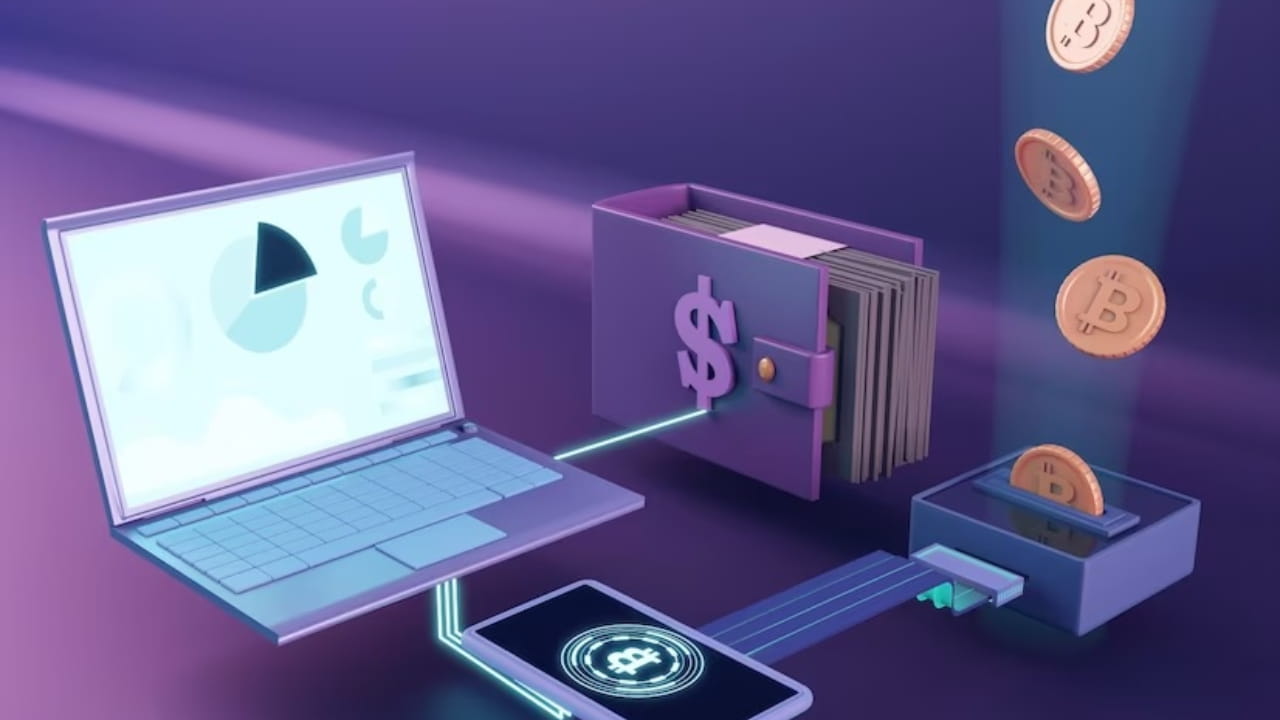Understanding free Bitcoin airdrop wallet requirements is crucial for anyone looking to participate safely in cryptocurrency distributions. Bitcoin airdrops represent one of the most exciting opportunities in the crypto space, allowing users to receive free tokens directly to their wallets. However, meeting the proper wallet requirements isn’t just about receiving tokens—it’s about protecting your digital assets and ensuring you can securely manage your cryptocurrency portfolio.
The landscape of Bitcoin airdrops has evolved significantly, with legitimate projects implementing specific wallet requirements to ensure fair distribution and prevent fraud. Whether you’re a newcomer to cryptocurrency or an experienced trader, knowing these requirements can mean the difference between successfully claiming valuable tokens and missing out on opportunities or, worse, compromising your security.
What Are Bitcoin Airdrops and Why Do They Matter?
Bitcoin airdrops are marketing strategies employed by cryptocurrency projects to distribute free tokens to existing Bitcoin holders or community members. These distributions serve multiple purposes: building awareness, rewarding loyalty, and creating initial token circulation for new projects.
The concept originated from the need to bootstrap new cryptocurrency networks. By giving away tokens to Bitcoin holders, projects leverage Bitcoin’s established user base and security model. This approach has proven successful for numerous projects, with some airdrop recipients receiving tokens worth thousands of dollars.
However, not all airdrops are created equal. Legitimate airdrops have specific requirements designed to ensure fair distribution and prevent abuse. Understanding these requirements is essential for anyone looking to participate safely and successfully.
Essential Free Bitcoin Airdrop Wallet Requirements
Wallet Type and Compatibility
The foundation of participating in Bitcoin airdrops starts with having the right type of wallet. Most legitimate airdrops require non-custodial wallets where you control your private keys. Exchange wallets typically don’t qualify because the exchange, not you, controls the private keys.
Hardware wallets like Ledger and Trezor are often preferred for their security features. These devices store your private keys offline, making them virtually immune to online attacks. Many airdrop projects specifically recognize and support hardware wallet addresses.
Software wallets also meet most airdrop requirements, provided they give you full control over your private keys. Popular options include Electrum, Exodus, and mobile wallets like Blue Wallet. The key factor is ensuring you can sign messages and prove ownership of your Bitcoin addresses.
Minimum Bitcoin Holdings
Many airdrops implement minimum Bitcoin balance requirements to participate. These thresholds vary significantly between projects, ranging from 0.001 BTC to 1 BTC or more. The minimum amount often correlates with the project’s target audience and distribution strategy.
Projects set these minimums for several reasons. First, they help prevent Sybil attacks where individuals create multiple wallets to claim more tokens. Second, they ensure distribution to genuine Bitcoin users rather than speculative participants. Third, they help manage the total number of recipients and distribution costs.
Some airdrops use snapshot dates, meaning your wallet must contain the minimum Bitcoin amount at a specific block height. Others require maintaining the balance throughout a qualification period. Understanding these timing requirements is crucial for successful participation.
Address Age and Transaction History
Established Bitcoin addresses with transaction history often receive preferential treatment in airdrop distributions. Projects view older addresses with regular transaction activity as indicators of genuine Bitcoin usage rather than speculative participation. Address age requirements typically range from 30 days to several years. Some projects require addresses to have been active before specific dates, often coinciding with major Bitcoin milestones or the project’s announcement date.
This prevents users from creating new addresses solely for airdrop participation. Transaction history requirements vary, but generally favour addresses with multiple transactions over time. Projects may require a minimum number of transactions, regular activity patterns, or interaction with specific Bitcoin features like Lightning Network or multi-signature wallets.
Technical Wallet Setup Requirements

Proper Private Key Management
Successful airdrop participation requires demonstrating control over your Bitcoin addresses through private key signatures. This process, known as address signing, proves ownership without exposing your private keys to third parties. Most airdrop platforms require participants to sign a specific message using their wallet’s private key.
The signed message, along with your Bitcoin address, serves as cryptographic proof of ownership. This security measure prevents fraudulent claims and ensures tokens reach legitimate address owners. Different wallet types have varying signing procedures. Hardware wallets typically require confirmation on the device itself, while software wallets may use built-in signing features. Understanding your wallet’s signing process before airdrop announcements can prevent last-minute complications.
Network Fee Considerations
Bitcoin network fees play a crucial role in airdrop participation. While receiving tokens doesn’t usually incur fees, you’ll need sufficient Bitcoin to cover transaction fees for future token transfers or exchanges. Airdrop tokens often require additional transactions to claim or transfer. Projects may distribute tokens to your address automatically, or you might need to interact with smart contracts or claim websites.
Each interaction requires network fees, which can vary significantly based on network congestion. Planning for network fees is particularly important during high-activity periods when airdrop claims often coincide with increased Bitcoin network usage. Maintaining a small Bitcoin balance specifically for fees ensures you can access and use your airdropped tokens when needed.
Security Protocol Implementation
Implementing robust security protocols is essential for safe airdrop participation. This includes using unique, strong passwords for all cryptocurrency-related accounts and enabling two-factor authentication wherever possible. Regular wallet backups protect against data loss and ensure continuous access to your Bitcoin and airdropped tokens. Most wallets provide seed phrase backup systems—store these phrases securely offline and never share them with anyone claiming to facilitate airdrop participation.
Keeping wallet software updated ensures you have the latest security features and compatibility with new airdrop distribution methods. Some airdrops require specific wallet versions or features, making regular updates crucial for eligibility.
Verification and KYC Requirements for Airdrops
Identity Verification Processes
Many legitimate airdrops implement Know Your Customer (KYC) requirements to comply with regulatory frameworks and prevent fraud. These processes typically require government-issued identification, proof of address, and sometimes additional documentation. KYC requirements vary by project location, token type, and distribution amount.
Smaller airdrops may require minimal verification, while larger distributions often implement comprehensive KYC procedures similar to cryptocurrency exchanges. Understanding KYC requirements early in the airdrop process prevents last-minute complications. Some projects have limited verification periods or caps on the number of participants they’ll verify, making early submission advantageous.
Geographic Restrictions and Compliance
Airdrop eligibility often depends on your geographic location due to varying cryptocurrency regulations worldwide. Projects commonly exclude participants from specific countries or regions where token distribution might violate local laws. United States residents often face additional restrictions due to securities regulations.
Many projects exclude US participants entirely or implement separate distribution mechanisms to comply with regulatory requirements. Verifying geographic eligibility before investing time in wallet setup and verification prevents disappointment and wasted effort. Legitimate projects communicate geographic restrictions in their official documentation and announcements.
Security Best Practices for Airdrop Participation

Protecting Your Private Information
Airdrop participation requires sharing varying amounts of personal information, making privacy protection crucial. Legitimate projects minimize data collection and clearly explain how they’ll use your information. Creating dedicated email addresses for airdrop communications helps organize participation and reduces exposure of your primary email to potential spam or phishing attempts.
Using privacy-focused email providers adds a security layer. Be cautious about social media verification requirements. While many legitimate airdrops require social media engagement, never share private keys, seed phrases, or sensitive personal information through these channels.
Recognizing Legitimate vs. Fraudulent Airdrops
Distinguishing legitimate airdrops from scams is crucial for protecting your assets and personal information. Legitimate projects have transparent teams, clear documentation, and realistic distribution mechanisms. Red flags include requests for private keys, seed phrases, or upfront payments. Legitimate airdrops never require you to send cryptocurrency to receive tokens.
They also don’t ask for sensitive wallet information through unsecured channels. Research project teams, read whitepapers, and verify official communication channels before participating. Legitimate projects maintain professional websites, active social media presence, and clear contact information.
Also Read: LayerEdge EDGEN Airdrop and Binance Alpha Listing Explained
Platform-Specific Wallet Requirements
Exchange Wallet Limitations
Most cryptocurrency exchanges don’t support airdrop participation because users don’t control their private keys. When airdrops are distributed to exchange addresses, the exchange typically decides whether to credit user accounts with the new tokens. Some exchanges have announced support for specific airdrops, but this support is inconsistent and often comes with additional requirements or fees.
Relying on exchange wallets for airdrop participation significantly reduces your chances of receiving tokens. For guaranteed airdrop participation, transferring Bitcoin to a wallet where you control the private keys is essential. This transfer should occur well before any announced snapshot dates to ensure eligibility.
Mobile Wallet Considerations
Mobile wallets offer convenience for airdrop participation but require careful selection to ensure compatibility. Not all mobile wallets support the signing features necessary for airdrop verification. Popular mobile wallets like Blue Wallet, Samourai Wallet, and Green Wallet typically support the necessary features for airdrop participation.
However, always verify specific wallet capabilities before relying on them for airdrop claims. Security considerations for mobile wallets include regular updates, strong device passwords, and avoiding public Wi-Fi for airdrop-related activities. Consider using dedicated devices for cryptocurrency activities if participating in high-value airdrops.
Hardware Wallet Integration
Hardware wallets provide the highest security level for airdrop participation while maintaining full private key control. Leading hardware wallet manufacturers like Ledger and Trezor regularly update their software to support new airdrop requirements. Integration with desktop software allows hardware wallet users to sign messages and interact with airdrop platforms while keeping private keys secure on the hardware device.
This combination offers optimal security and functionality. Some advanced airdrops may require specific hardware wallet features or firmware versions. Staying updated with manufacturer announcements and maintaining current firmware ensures compatibility with new airdrop distribution methods.
Common Mistakes to Avoid
Timing and Deadline Errors
Missing airdrop deadlines is one of the most common participation mistakes. Many airdrops have specific claim periods, snapshot dates, or registration deadlines that strictly determine eligibility. Creating calendar reminders for important airdrop dates helps prevent missed opportunities.
Include buffer time before deadlines to account for verification delays, network congestion, or technical issues. Understanding time zones is crucial when dealing with international projects. Verify whether announced times use UTC, project team locations, or your local time zone to avoid confusion.
Documentation and Backup Failures
Failing to properly document airdrop participation can result in lost tokens or an inability to prove eligibility. Maintain records of registration confirmations, transaction IDs, and communication with project teams. Screenshot important information throughout the participation process, including registration forms, verification confirmations, and any unique identifiers provided by the project.
These records may be necessary for customer support interactions. Regular wallet backups become even more important when participating in multiple airdrops. New tokens appearing in your wallet create additional backup requirements to ensure complete asset recovery if needed.
Future Trends in Airdrop Requirements
Evolving Security Standards
Airdrop security requirements continue evolving as the cryptocurrency ecosystem matures. Future airdrops may implement more sophisticated verification methods, including biometric authentication or advanced cryptographic proofs. Integration with decentralized identity solutions could streamline verification while maintaining privacy.
These systems would allow users to prove specific attributes (like address ownership or geographic location) without revealing unnecessary personal information. Multi-signature requirements might become more common for high-value airdrops, requiring multiple forms of verification or approval from different wallet addresses controlled by the same user.
Regulatory Compliance Evolution
Changing cryptocurrency regulations worldwide will likely impact future airdrop requirements. Projects may implement more comprehensive KYC procedures or develop new distribution methods to comply with evolving legal frameworks.
Tax reporting requirements may become integrated into airdrop platforms, automatically generating necessary documentation for participants in jurisdictions where airdrops are taxable events. Cross-border compliance solutions could emerge to help projects navigate varying international regulations while maintaining global participation opportunities.
Conclusion
Successfully participating in Bitcoin airdrops requires understanding and meeting specific free Bitcoin airdrop wallet requirements that prioritize security, verification, and technical compatibility. From choosing the right wallet type to implementing proper security protocols, each requirement serves to protect both participants and project integrity. The key to successful airdrop participation lies in preparation and security-first thinking. Establish your wallet setup well before announcements, maintain proper documentation, and never compromise on security practices regardless of potential token values.
Ready to start participating in legitimate Bitcoin airdrops? Begin by setting up a compatible wallet that meets free Bitcoin airdrop wallet requirements, implement robust security measures, and stay informed about upcoming opportunities through official project channels. Remember, legitimate airdrops never require upfront payments or private key sharing—prioritize your security above all potential rewards.
FAQs
What type of wallet do I need for Bitcoin airdrops?
You need a non-custodial wallet where you control the private keys. Hardware wallets like Ledger or Trezor are preferred for security, but software wallets like Electrum or Blue Wallet also work. Exchange wallets typically don’t qualify because you don’t control the private keys.
How much Bitcoin do I need to hold for airdrops?
Minimum Bitcoin requirements vary by project, typically ranging from 0.001 BTC to 1 BTC or more. Some airdrops have no minimum, while others require substantial holdings. Check each project’s specific requirements during the announcement phase.
Do I need to verify my identity for Bitcoin airdrops?
Many legitimate airdrops require KYC (Know Your Customer) verification to comply with regulations and prevent fraud. This typically involves submitting a government-issued ID and proof of address. Requirements vary by project size and token value.
Can I use the same wallet for multiple airdrops?
Yes, you can use the same wallet for multiple airdrops. Maintaining a dedicated airdrop wallet with a transaction history often increases your eligibility for future airdrops. Just ensure the wallet meets each project’s specific requirements.
How do I prove ownership of my Bitcoin address?
Most airdrops require signing a message with your private key to prove address ownership. This process varies by wallet type but typically involves using your wallet’s built-in signing feature to create a cryptographic signature without exposing your private keys.

